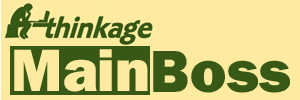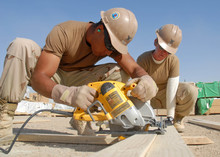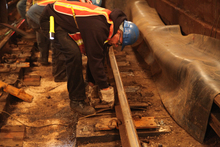Optimizing Your CMMS
Review, review, review
Even if you got everything right the first time, situations change
AND...
You didn't get everything right the first time
Process flow review
Work orders--creation to completion:
- What is the average time?
- What is the longest time?
- Are your satisfied with these figures?
Have you seen any percentage decrease in corrective work orders (due to an
increase in preventive)? Should you be doing more?
How do workers use the CMMS (if at all)? Do you want to change?
Benchmarking PM Inspections
Compare the actual time that inspections were conducted vs. when they were
originally scheduled. If the delay is too great, should you change the schedules?
Examine work orders generated from inspections. If inspections are turning up a
lot of problems, should you make inspections more frequent? If inspections are
almost always clean, can you make them less frequent?
Travel times
How much time/money do you lose on worker travel (from HQ to job site, to
storerooms, etc.)?
If travel costs are high, would it be cost-effective to expand locations (e.g.
branch offices, extra storerooms, etc.)?
What's moving, what's not?
What do you need? What don't you need?
What spare parts are critical? Are you sure your list of critical parts is up to
date?
What parts are no longer necessary (equipment no longer used)?
PM Compliance
Are you 100% complying with necessary preventive maintenance?
If not, what's your path to get there?
Are PM jobs getting done on time?
Work order completeness
- Do your work orders include materials and manpower?
- Do you schedule workers in advance? How far in advance?
- Do you record useful info after the job is done?
- How long job actually took
- What caused the problem
- Advice for future workers
- Recommendations for future work
Coding review
Equipment, spaces, types, systems, work categories: is the coding system
working? Should it be adjusted?
Are there more codes/categories you should be tracking?
Filing
Are you storing critical records properly?
How do you organize inspection data?
Do you comply with all governmental regulations (including inspections)?
Costs
Compare actual costs to budgeted costs
What did you get wrong?
What needs to be changed?
Equipment work orders
What piece of equipment costs the most to maintain? What can you do to reduce
this?
What piece of equipment causes the most disruption if it goes down? How do
you reduce downtime?
Equipment replacement
Set up/review the five-year plan for equipment replacement
Which equipment is reaching the end of its expected life cycle?
Will it actually need to be replaced?
If so, make sure replacement is budgeted
Contractors and vendors
What do you contract out?
What have you actually spent?
If you use multiple contractors for similar jobs, compare the prices and quality of
work for each contractor
Do you want to make changes?
Review your list of vendors and remove the ones you no longer use
General review
Equipment info, PM tasks, and so on
Is the info still accurate?
Is it complete?
Is it still relevant?
Phones and Tablets
Yes or no?
Pros: data feeds immediately back and forth between the phone and tablet and your main
CMMS system
Cons: entering data on a phone or tablet is difficult, so workers usually do the minimum--
instead of recording useful information after a job is finished, they usually just
type "Done". Therefore, the use of phones and tablets tends to eliminate the "flowback" of
information from the job site to your main system.
Employee review
Compare the times that different employees spend on similar jobs and the quality
of jobs
Compare the overall times that different employees spend on work
If employees do data entry in the CMMS, do you think that time is well spent, or
would you rather have them actively making repairs on the floor?
Compare the quality of information that the employees record after a job is done
Standard job descriptions
Consider making up a set of template work orders to minimize the amount of typing to create work orders.
Open work orders
How long have the work orders been open?
Why hasn't the work been done?
Still in the planning phase?
Waiting for materials?
Waiting for engineering?
Use work order status to keep track of problems.
Reports
What reports are you generating?
Who sees them? Should they be more widely distributed?
Some reports are vital records; are they stored safely?
What other reports might be useful in making or justifying decisions?
CMMS
Is your CMMS doing the job?
Are you happy with the provider? (Customer service, response time, updates,
prices...)
Customer satisfaction
Are your customers happy with the maintenance service you provide?
What can you do to improve?
Conclusion
Your operations have to be dynamic, not static
Review, adapt, review, adapt, review, adapt...




